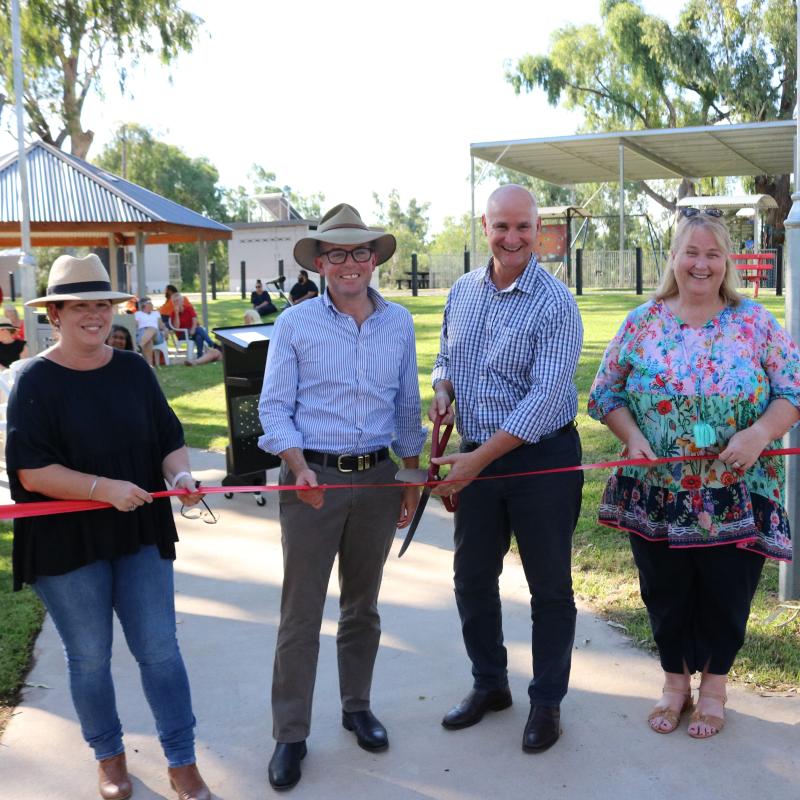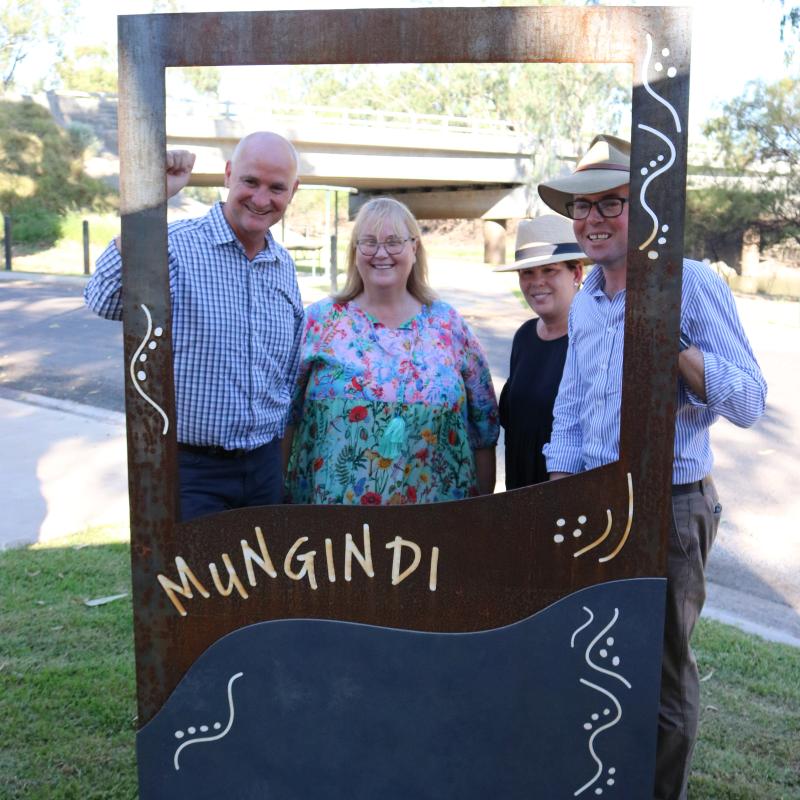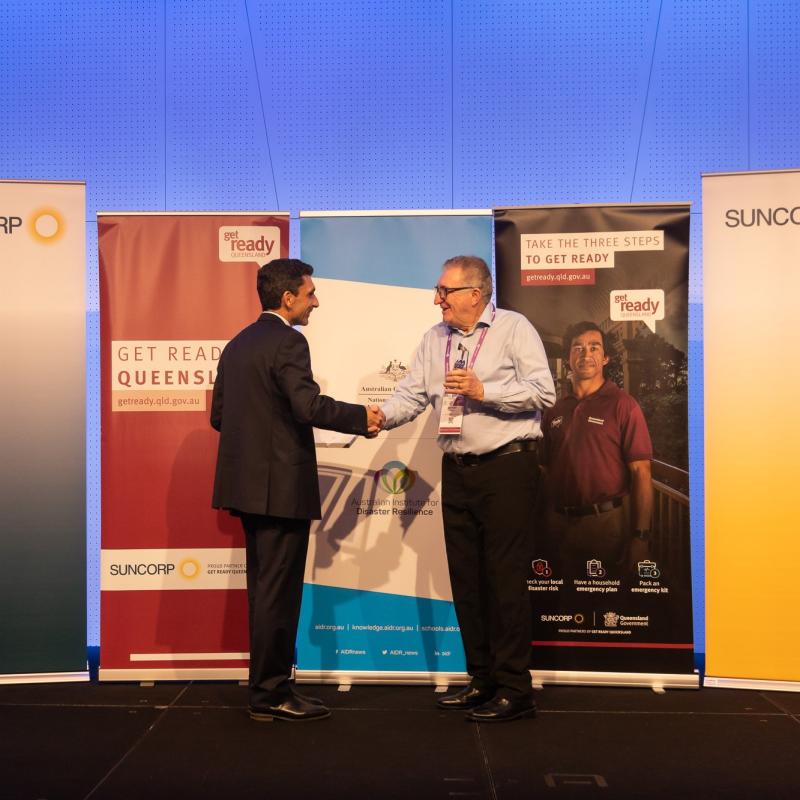How COVID broke down borders in Queensland’s south-west
How does a tiny, remote community that exists in truly unique circumstances complete with a range of unusual challenges, come together to develop a comprehensive and coordinated approach to disaster resilience?
In what some might consider unsurprising for the south-west Queensland town of Mungindi, the answer is tied to the COVID pandemic.
With a population of just 650 and straddling the Queensland-New South Wales border, Mungindi has the distinction of being the only town in the southern hemisphere with the same name and postcode on both sides of a border.
The town falls under the joint responsibility of Balonne Shire Council in Queensland and Moree Plains Shire Council in New South Wales.
Mungindi’s remote location and dual municipal management arrangements provide significant logistical challenges in areas such as law enforcement, health services and rubbish collection.
Not to mention the effect the Barwon River, which divides the town, has on disaster management arrangements.
Cue the COVID pandemic, which brought those issues and more into sharp focus, and was the catalyst for community leaders to develop a comprehensive cross-border service delivery model designed to strengthen community resilience.
The ‘border bubble’ arrangements, resulting from the closure of the border between Queensland and New South Wales, created a range of difficulties for the everyday activities of Mungindi residents.
Community leaders from both sides of the border came together to develop a Memorandum of Understanding (MoU) to provide Mungindi with a comprehensive service delivery model to ensure the town addressed the challenges living through the pandemic.
During that process, it became apparent the MoU had a strong emphasis on enhancing community resilience in the face of disasters.
Key issues to improving response capabilities were identified, including improving disaster management, coordinating efforts, providing critical infrastructure support, and the sharing of resources, knowledge and experience.
Identifying these issues and others has led to a number of outcomes that have substantially enhanced Mungindi’s disaster resilience, including expansion of the Balonne Local Disaster Management Group membership, a coordinated approach to disaster management, ensuring reliable water supply, improving internet connectivity, securing access to essential supplies and critical infrastructure, and the exchange of expertise and best practices.
The significant achievements and outcomes of the MoU with Moree Plains Shire Council promoting shared responsibility for disaster resilience and community safety success saw BSC declared joint winners of the Local Government category at the 2023 Queensland Resilient Australia Awards.
The collaboration between the two shires and its resulting improved response capabilities exemplifies the essence of the RAAs, which celebrate the strength of unity when it comes to embedding natural disaster resilience in communities.


